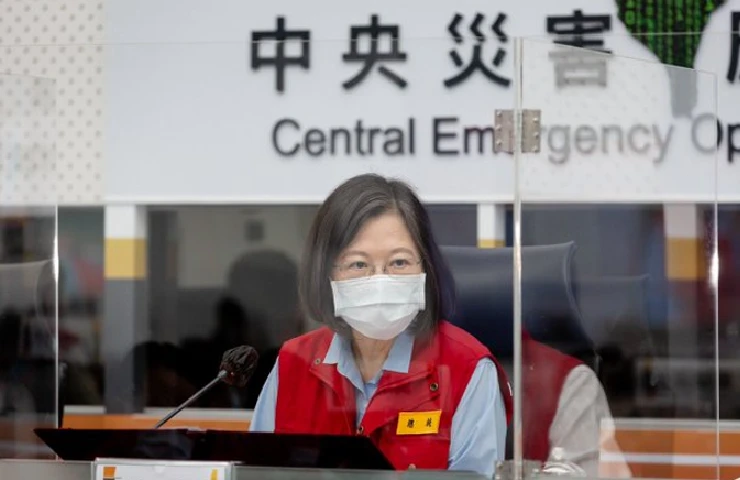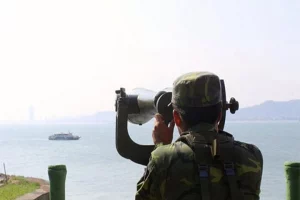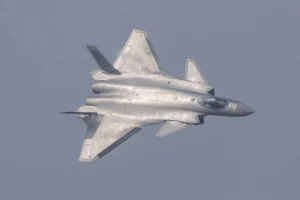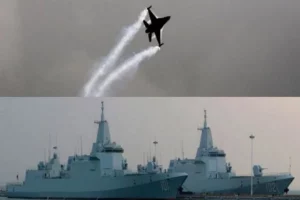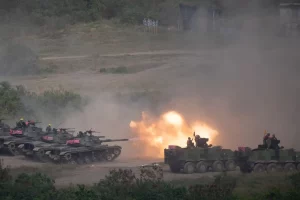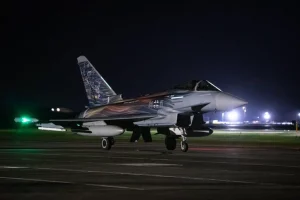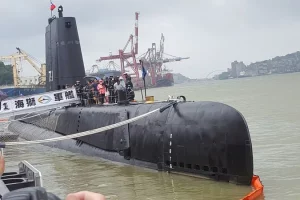Taiwan President Tsai Ing-wen has confirmed for the first time the presence of US troops on the island nation. She told US news channel CNN that she is confident that the US will come to the aid of Taiwan in case China launches an attack on her country.
In an exclusive interview with CNN's Will Ripley, Tsai said that the "threat from China is increasing every day" but Taiwan was a "beacon" of democracy that needed to be defended to uphold faith worldwide in democratic values.
She told CNN: "Here is this island of 23 million people trying hard every day to protect ourselves and protect our democracy and making sure that our people have the kind of freedom they deserve. If we fail, then that means people that believe in these values would doubt whether these are values that they (should) be fighting for."
In the last couple of years, almost coinciding with the advent of the coronavirus infection, China has threatened to invade Taiwan militarily and take over the country. It has increased incursions into the Taiwanese airspace and maritime domains with a view to building up military pressure.
With the US reinforcing its support to Taiwan, the Chinese pressure tactics on the island–barely 200 kms away from its eastern coast–there are fears that the current tensions could conflagrate into a Sino-US conflict. US Special Forces have been training Taiwanese troops in secret in an effort to strengthen the country's response to a possible Chinese invasion.
However, Tsai added that she would be willing to hold direct talks with Chinese President Xi Jinping in which they could talk about the differences. She said that the goal of such talks would be to have an arrangement in which the two countries could "co-exist peacefully."
Taiwan has steadfastly maintained that it has been separately governed for the last 70 years after a civil war split China in 1949. Taipei also wears its democratic credentials on its sleeves unlike Beijing which is run by a single party.
Tsai also stressed on the need to expedite Taiwan's military reforms to improve the country's ability to defend itself. She reasoned that given Taiwan's smaller military in comparison to China's the key is to develop its asymmetric warfare capabilities.
With Chinese planes violating the air space frequently and in larger numbers, Tsai agreed that the current state of cross-strait tensions is the "most challenging time for Taiwan."
Chinese President Xi has been making announcements to his people that he would bring about a "peaceful unification" between Taiwan and the Chinese mainland. China has also criticised the presence of US troops on the island as well as the American naval presence in the South China Sea.
Taiwan sees greater role for Japan to counter China in the Indo-Pacific






